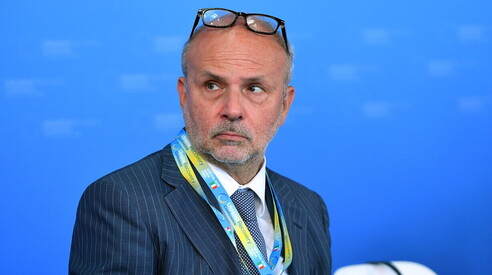Italy is excluded from the new international health regulation: the Meloni-Trump coalition on healthcare sovereignty is confirmed.


(Ansa photo)
the case
Health Minister Schillaci informed the Director General of the WHO of Italy's rejection of the amendments to the RSI, following the example of the U.S. Administration. The risks to vaccine compatibility with other countries and marginalization within the World Health Organization (WHO)
On the same topic:
With an official communication dated July 18, 2025, addressed to the Director-General of the World Health Organization (WHO), Tedros Adhanom Ghebreyesus , the Minister of Health Orazio Schillaci formally notified Italy of its rejection of the amendments to the International Health Regulations (IHR), adopted in 2024 with resolution WHA77.17 during the 77th World Health Assembly. The decision comes less than twenty-four hours before the official opt-out deadline (July 19) set forth in Article 61 of the IHR.
In the letter, Schillaci clearly affirms the Italian government's willingness to exercise its sovereign right to reject "all amendments adopted" there, placing Italy among the very few countries to have chosen this path . The gesture is highly politically and symbolic, as it represents a break with the multilateral approach Rome has followed to date on global health, and at the same time marks an explicit convergence with the position taken by the United States under Donald Trump.
The amendments approved in 2024 were the result of a lengthy negotiation process that began in the aftermath of the Covid-19 pandemic, aimed at addressing the gaps that had emerged in the international response. The new regulatory framework included the introduction of a specific category of "pandemic emergency," distinct from the broader "public health emergency of international concern" (PHEIC), and the adoption of more rapid, coordinated, and binding instruments to address global health crises.
Among the main innovations: the creation of National IHR Authorities with strengthened powers compared to the previous focal points, the obligation for States to maintain structural capacities even in the absence of emergencies, the commitment to ensure equity in access to vaccines and treatments, and the establishment of a new model for international vaccination certificates, destined to become the global standard starting from 19 September 2025 .

By opting out, Italy will remain bound by the 2005 version of the Regulation. This choice does not imply withdrawal from the WHO, but it does place it on the margins of ongoing regulatory developments. Technically, this will mean that our country will continue to use vaccination certificates according to the old format, with the real risk that these documents will no longer be recognized in other countries adhering to the new standards. This could cause significant disruption for Italian citizens when traveling internationally, especially in the event of new health emergencies, with the potential for additional health checks, revaccination requirements, quarantines, or entry restrictions.
Even in terms of international cooperation, the implications are not insignificant. Italy will not be able to access the new health and financial solidarity tools envisaged by the amendments, including dedicated funds, data-sharing platforms, and support mechanisms for countries in difficulty. This will therefore be a "reduced" participation in the global health response system, with possible diplomatic repercussions as well .
The government justified this choice by the need to protect national sovereignty. According to the Meloni government, the amendments risked overly expanding the WHO's powers, granting its Director General a decision-making role capable of influencing domestic health policies, including containment measures, public information management, and crisis response planning.
This reasoning is echoed in the position expressed by the United States. Just hours before Italy's notification, a joint statement signed by Secretary of State Marco Rubio and Minister of Health Robert F. Kennedy announced America's rejection of the WHO amendments. In the document, Rubio and Kennedy criticized the "excessive centralization of power in the hands of the WHO," which they deemed incompatible with the principles of American constitutional democracy, and argued that concepts such as "solidarity" and "equity" were "politically exploited," contradicting the need for rapid and effective responses.
Both governments emphasize the risk of interference with freedom of speech, citizens' privacy, and the independent management of health crises. It is precisely on this ground that a new Atlantic axis has been forged, based on a more nationalist vision of public health, distant from the multilateral mechanisms promoted by the WHO.
The Meloni government's move, therefore, does not appear to be isolated or merely technical, but is part of a broader political context, once again signaling a strategic alignment with the new American administration. This decision could have significant consequences, both in terms of global health cooperation and for Italy's international standing.
It now remains to be seen what the concrete effects of this step backward from the IHR reform process will be. In all likelihood, the first operational difficulties will emerge in the coming months, especially in relations with countries that have adopted the new standards. But what is already clear is that Italy has made a choice, abandoning a shared global system in the name of an inexplicable healthcare sovereignty. This change of direction opens up new scenarios and raises questions about the viability of international healthcare governance in the coming years.
More on these topics:
ilmanifesto



